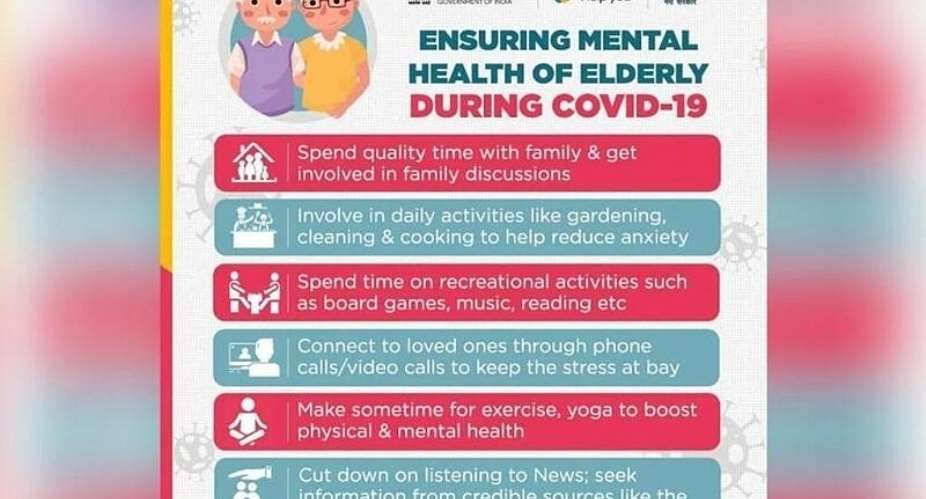India's harsh coronavirus lockdown has seen a spike in cases of mental illness, with experts warning that distress calls and reports of suicidal tendencies had been alarmingly high since the confinement began on 24 March.
The Indian Psychiatry Society (IPS) said a recent study showed a 20 percent rise in mental illness cases, affecting at least one in five Indians.
Prime Minister Narendra Modi's stringent Covid-19 lockdown, which is to being lifting on 18 May, is one major reason, according to IPS.
The survey claims that people have been living in fear of losing their jobs, and businesses due to the lockdown resulting in mental distress.
Suicides in rural areas
“The lockdown has had a massive impact on the lifestyle of people. They are staying indoors with limited resources. They are now suffering from anxiety and panic attacks,” says Manu Tiwari, a mental health and behavioural sciences expert.
There have been several incidents that have received publicity.
A 26-year-old studying in Ranchi, killed herself because she was unable to go back to her parents' home during the lockdown.
A 56-year-old hanged himself in Andhra Pradesh's Chittoor district near his mother's grave because he thought he had contracted the coronavirus and was afraid he would infect his three children and wife.
The ongoing reverse migration of millions of day workers to their villages is also fertile ground for a deterioration of mental health.
“Rural India may be particularly susceptible to suicide due to the influx of migrant workers, and also because it is home to the at-risk farming community," says Nelson Vinod Moses of the Suicide Prevention India Foundation.
Suicide prevention policy
The social and economic fissures exposed by the pandemic are also expected to result in unemployment, depleted social safety nets and starvation, among other things.
Health workers are pressing for the implementation of the Mental Healthcare Act, introduced three years back, that promises to provide mental health care to all and introduce a suicide prevention policy.
Many countries, including China, have been able to significantly reduce suicides after they implemented a suicide prevention policy.
Post-Covid trauma
Some believe a post-Covid-19 landscape will be a fertile breeding ground for an increase in chronic stress, anxiety, depression, alcohol dependence, and self-harm.
On Wednesday, UN Secretary-General Antonio Guterres urged governments, civil society and health authorities to urgently address mental health needs arising from the coronavirus pandemic.
"After decades of neglect and under-investment in mental health services, the Covid-19 pandemic is now hitting families and communities with additional mental stress," he said.





 Avoid pre-registered SIMs, buyer and seller liable for prosecution – Ursula Owus...
Avoid pre-registered SIMs, buyer and seller liable for prosecution – Ursula Owus...
 Election 2024: Mahama has nothing new to offer Ghanaians, Bawumia is the future ...
Election 2024: Mahama has nothing new to offer Ghanaians, Bawumia is the future ...
 OSP files fresh charges against ex- PPA Boss
OSP files fresh charges against ex- PPA Boss
 Withdraw unreasonable GH¢5.8m fine against former board members – ECG tells PURC
Withdraw unreasonable GH¢5.8m fine against former board members – ECG tells PURC
 Akroma mine attack: Over 20 armed robbers injure workers, steal gold at Esaase
Akroma mine attack: Over 20 armed robbers injure workers, steal gold at Esaase
 Those who understand me have embraced hope for the future — Cheddar
Those who understand me have embraced hope for the future — Cheddar
 Ghana will make maiden voyage into space should Bawumia become President — Chair...
Ghana will make maiden voyage into space should Bawumia become President — Chair...
 Train crash: Despite the sabotage, we shall not be deterred and will persevere —...
Train crash: Despite the sabotage, we shall not be deterred and will persevere —...
 Tema-Mpakadan railway project a perversion of the original viable concept design...
Tema-Mpakadan railway project a perversion of the original viable concept design...
 Train crash: Elsewhere, everyone involved in the test will either be fired or re...
Train crash: Elsewhere, everyone involved in the test will either be fired or re...
